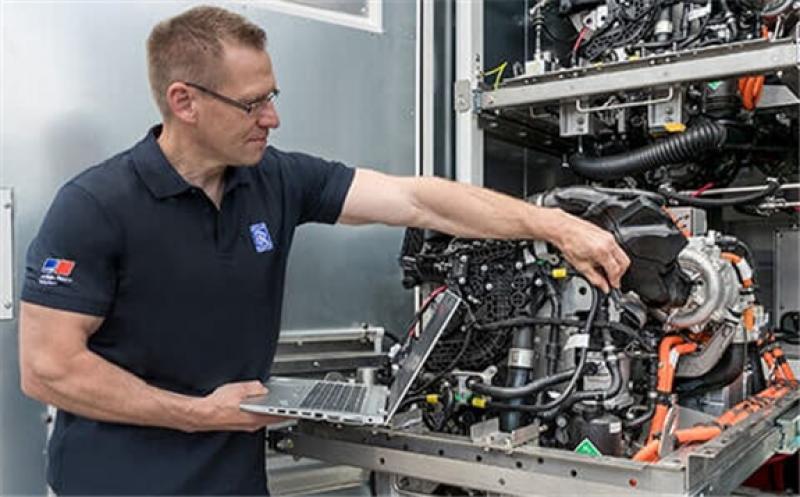Rolls-Royce has today (June 10) confirmed that fuel cell systems will be an essential part of its sustainable solutions portfolio, with the luxury carmakers’ CEO wanting to assume a “pioneering role in fuel cell applications”.

Affirming such commitment, the British engineering giant has said it is currently setting up a 250kW demonstrator at its Friedrichshafen, Germany plant to test sustainable and climate-friendly power supply based on fuel cells.
“We firmly believe that fuel cell technology is set to make a huge contribution to a successful energy turnaround. That’s why Rolls-Royce sees it as its mission to assume a pioneering role in fuel cell applications,” said Andreas Schell, CEO of Rolls-Royce Power Systems.
“Fuel cells will form an elementary part of our product portfolio for sustainable solutions.”
Much has already happened at the Friedrichshafen plant in recent months, with the complex hydrogen infrastructure now installed and the container all set up, complete with its four low-temperature polymer electrolyte membrane (PEM) fuel cell modules.
Designed at the company’s plants in Ruhstorf, Bavaria, and Friedrichshafen, safety dictates that the container has two separate compartments for fuel cells and batteries, plus a host of power electronics.
The control system has now been fully refined, cooling and air conditioning are on the roof, and a rack system enables simple maintenance, allowing individual system modules to be replaced as required.
Using fuel cell modules from the automotive sector, the energy systems have been put through their paces on a test stand, and the Rolls-Royce engineers are more than happy with the results.
On the results, Dr. Peter Riegger, Vice President Rolls-Royce PowerLab, said, “Power flexing characteristics and performance are excellent, and as expected there are no vibrations or no loud noises.
Rolls-Royce said the demonstrator will be used for test purposes and to show interested parties which applications the system is suitable for including standby power, prime power, uninterruptible power supplies (UPS) and ‘black start’ capability.